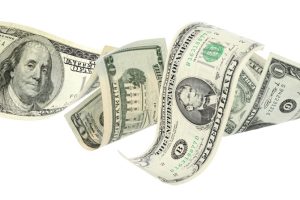Overdraft services are a standard banking product. Life happens, and thankfully, most banks offer an overdraft product to come to the rescue when you are on vacation and forgot to do a savings transfer, or transpose numbers when balancing your checkbook. The end of 2021 came with a cautionary tale for financial institutions from regulators: Overhaul your overdraft services or potentially face enhanced scrutiny.
History
This is not the first time the Consumer Financial Protection Bureau (CFPB) has conducted research related to overdraft programs. Shortly after its creation in 2011, the CFPB published a semiannual report in 2012 that highlighted the pitfalls and consumer woes related to account maintenance and overdraft programs. The report revealed general consumer challenges with financial services but specifically discussed consumer confusion concerning overdraft programs, alluding to complex parameters.
In recent years, there would be an enforcement action here or there related to overdraft fees. Many of these actions stemmed not from the products themselves but how consumers were sold or enrolled for participation in them. More recently, in 2020, TD Bank was found to be in violation of Regulation E as it related to overdraft fees for ATM and one-time debit card transactions and ordered to pay $112 million in fees.i In 2018, Minnesota-based TCF National Bank was in hot water for the same practices and was assessed $28 million in fees.ii
Regulator Research
The CFPB conducted research using call report data to determine overdraft and insufficient fees on bank revenue. It primarily looked at two data points:
- Overdraft/NSF fee reliance since 2015
- Checking account overdraft at financial institutions served by core processors
The first data point showed institutions with more than $1 billion in assets totaled $11.97 billion collectively in fees in 2019. Overall market revenue for these fees was $15.47 billion in 2019. The apparent problematic statistic for advocacy groups and regulators is that overdraft and nonsufficient funds fees account for about two-thirds of fee revenue for institutions, making banks heavily reliant on this revenue. The second data point looked at core processors and their data for smaller institutions, primarily data for 2014. This research found 92.9% of smaller banks and 60.9% of credit unions had an overdraft program with 13 to 19% lower fees than large banks.iii
Research Reactions
On Dec. 1, 2021, CFPB Director Rohit Chopra published prepared comments in conjunction with the published CFPB research. One comment emphasized that instead of being paid (in interest) for banks holding consumers’ money, consumers now pay large banks for this privilege, primarily through account service charges like overdraft fees. Chopra went on to liken an overdraft fee to interest paid on a short-term loan, using the example of a consumer being charged a $34 daily fee for a day or two for the bank covering the small negative balance in their deposit account, and how that would equate to an annual percentage rate (APR) of more than 10,000% on a loan.
Chopra also said CFPB bank examiners will prioritize examinations of banks heavily reliant on overdraft fees, likely focusing again on call report data for this determination. “Financial institutions that have a higher share of frequent overdrafters or a higher average fee burden for overdrafting should expect us to be paying them close supervisory attention. Ultimately, we plan to inform institutions on where they stand relative to their peers with overdraft. We believe sharing that information will increase transparency and help against the race to the bottom we have seen in this market.”iv
Industry Response
In response to the CFPB’s claim to enhanced scrutiny into overdraft-related products, multiple large banks have begun slashing overdraft and insufficient fees or have drastically overhauled their overdraft products with more consumer-beneficial features. Here is a quick snapshot of some recent changes at large institutions:
Ally
- No more overdraft fees
Bank of America
- Overdraft fee reduced from $35 to $10 on debit card purchases with insufficient balances
Capital One
- Complete elimination of all overdraft and NSF fees
JP Morgan Chase
- No overdraft fee until account overdrawn at least $50; No fees assessed until after a full day to restore overdrawn balances
- Allow access to direct deposit up to two business days early
- No NSF Fees
Cutting fees in these programs may be more of a challenge for smaller institutions that do not have the diversified revenue streams that larger banks have. As your institution reviews its programs and procedures regarding overdraft protection and handling of insufficient funds, bear in mind the consumer protection regulations that may be applicable:
- Regulation B — Equal Credit Opportunity Act
- Regulation E — Electronic Fund Transfer Act
- Regulation V — Fair Credit Reporting Act
- Regulation Z — Truth in Lending Act
- Regulation DD — Truth in Savings Act
- Third-Party Oversight
- Unfair, Deceptive, or Abusive Acts or Practices (UDAAP) .
This article is for general information purposes only and is not to be considered as legal advice. This information was written by qualified, experienced BKD professionals, but applying this information to your particular situation requires careful consideration of your specific facts and circumstances. Consult your BKD advisor or legal counsel before acting on any matter covered in this update.
i Consumer Financial Protection Bureau Announces Settlements with TD Bank for Illegal Overdraft Practices, August 20, 2020, https://www.consumerfinance.gov/about-us/newsroom/cfpb-announces-settlement-td-bank-illegal-overdraft-practices/.
ii Bureau of Consumer Financial Protection Settles With TCF National Bank, July 20, 2018,
iii CFPB Research Shows Banks’ Deep Dependence on Overdraft Fees, December 1, 2021, https://www.consumerfinance.gov/about-us/newsroom/cfpb-research-shows-banks-deep-dependence-on-overdraft-fees/.
iv Prepared Remarks of CFPB Director Rohit Chopra on the Overdraft Press Call, December 1, 2021, https://www.consumerfinance.gov/about-us/newsroom/prepared-remarks-cfpb-director-rohit-chopra-overdraft-press-call/
Katie Harrison, J.D., CRCM Director









